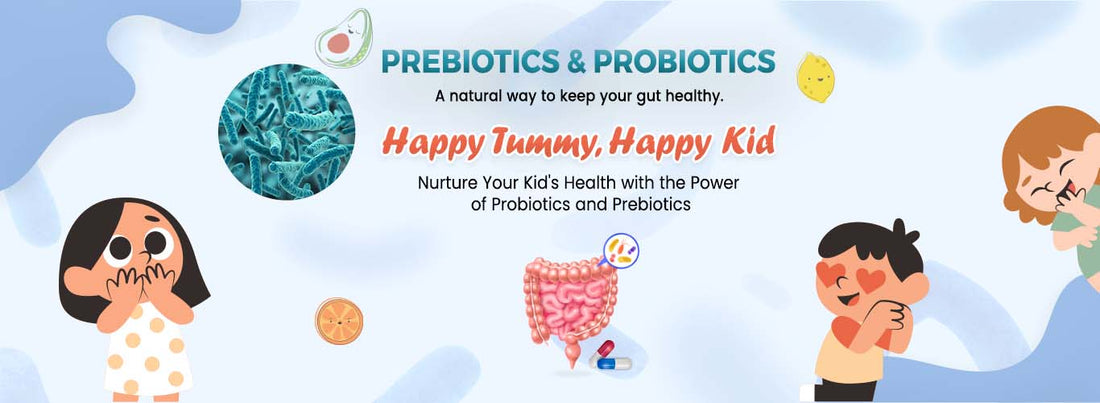Probiotics and Prebiotics are extremely beneficial for the Kid's health and their guts. According to Pediatricians or Doctors, Kids or adults need abundant amounts of both probiotics and prebiotics in their diet to stay healthy. If you want to enhance the kid's immune system or boost the good gut bacteria you should go for kid-friendly Prebiotics and Probiotics such as gummies, tablets, and syrups.
Now the question is, what are Prebiotics and Probiotics, and why do kids need them?
What is Probiotics?
Probiotics aid in the growth of beneficial bacteria for your health. Friendly bacteria in probiotics compete with dangerous bacteria and colonize the gut. Probiotic foods and supplements aid in the elimination and maintenance of regularity, as well as the reduction of bloating and associated discomfort.
Probiotics, sometimes known as 'friendly bacteria,' are naturally found in many foods and can also be purchased as a supplement.
They may assist children's health by fostering a healthy digestive system and optimum bacterial balance.
Probiotic Foods That Are Super Healthy
- Yogurt
- Buttermilk
- Tempeh (soy-based food)
- Sauerkraut (fermented cabbage)
- Cottage Cheese
What is Prebiotics?
Prebiotic components are derived from carbohydrate types (mostly fiber) that humans cannot digest. This fiber is consumed by the good bacteria in your gut.
Your child requires healthy gut flora to maintain a healthy digestive and immunological system. That means enough probiotics to maintain the beneficial gut bacteria in charge, as well as plenty of prebiotics to feed those probiotics. With the correct whole foods, you may increase your child's prebiotic consumption.
Prebiotics Foods that are incredible for Kid’s Health
- Asparagus
- Onions
- Bananas
- Garlic
- Apples
- Dandelion greens
- Leeks
Benefits of Prebiotics and Probiotics for Kids:
Improved Digestive Health: Prebiotics and probiotics work together to maintain a healthy gut. They aid in digestion, prevent constipation, and reduce gastrointestinal discomfort.
Diarrhea and IBS Prevention: Probiotics can help prevent and treat diarrhea, including infectious diarrhea and diarrhea associated with irritable bowel syndrome (IBS).
Boosted Immunity: A substantial portion of the immune system resides in the gut. Prebiotics and probiotics help strengthen the immune system, making it more resilient against infections.
Enhanced Brain and Mental Health: Emerging research suggests a connection between gut health and brain function. A balanced gut microbiome can potentially have a positive impact on a child's cognitive development and mood regulation.
Important Considerations:
Before introducing prebiotics and probiotics into your child's diet, it's essential to consult with their pediatrician. Each child is unique, and their dietary needs may vary. Additionally, the pediatrician can recommend suitable probiotic and prebiotic sources and dosages tailored to your child's age and health condition.
Children benefit from many of the same health benefits as adults, such as promoting healthy gut bacterial development and boosting the immune system. However, before adding probiotics and prebiotics to your child's diet, check with their pediatrician to ensure that probiotics and prebiotics are appropriate for them.
In conclusion, prebiotics and probiotics are essential for children's health as they support a healthy digestive system, strengthen the immune system, and may even influence mental well-being. Incorporating prebiotic and probiotic-rich foods into a child's diet, under the guidance of a healthcare professional, can contribute to their overall health and well-being.

